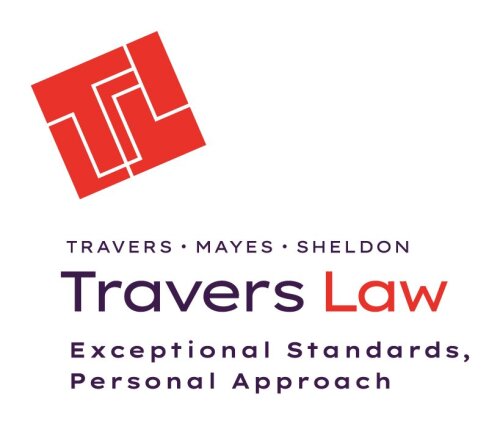Best Probate Lawyers in Waterloo
Share your needs with us, get contacted by law firms.
Free. Takes 2 min.
List of the best lawyers in Waterloo, Canada
About Probate Law in Waterloo, Canada
Probate is the legal process through which a deceased person's will is validated, their assets are identified, debts are settled, and remaining property is distributed to beneficiaries. In Waterloo, Ontario, probate is governed by provincial laws and is typically administrated by the Superior Court of Justice. If someone dies with a will, the estate trustee (executor) often needs to apply for something called a "Certificate of Appointment of Estate Trustee With a Will" to manage the deceased’s estate. If there is no will, the process involves appointing an estate trustee without a will, making the procedure more complex. Probate provides legitimacy to the executor and helps protect them from liability.
Why You May Need a Lawyer
Seeking legal assistance during probate is common in Waterloo, especially when situations are complicated or unfamiliar. You may need a lawyer if:
- There are disputes among family members or beneficiaries.
- The will’s validity is being challenged.
- You are unsure how to value complex assets like businesses or properties.
- There are large debts or tax issues associated with the estate.
- The estate involves foreign assets or non-resident beneficiaries.
- There is no will, and the rules of intestacy apply.
- You have concerns about liability or potential lawsuits as an executor.
A lawyer can guide you through the paperwork, timelines, and technical requirements, and help resolve conflicts efficiently.
Local Laws Overview
Probate in Waterloo is regulated under Ontario’s Estates Act, Rules of Civil Procedure, and related provincial statutes. Key aspects include:
- The necessity, in most cases, for the executor to apply to the Ontario Superior Court of Justice for authority to administer the estate.
- Payment of “Estate Administration Tax” (commonly called probate fees), which is calculated based on the value of the estate.
- Legal requirements for proper notice to beneficiaries and other relevant parties, including the delivery of court documents.
- Rules around intestacy (where there is no valid will), which dictate how assets are divided among relatives.
- Obligations for executors to account to the beneficiaries and possibly the court, providing transparent reporting on all estate activities.
- Special rules for minor or incapable beneficiaries and the duty to involve the Office of the Children’s Lawyer or the Public Guardian and Trustee where appropriate.
Understanding and adhering to these laws help ensure the probate process proceeds smoothly and lawfully in Waterloo.
Frequently Asked Questions
What is probate, and when is it required in Waterloo?
Probate is the court process of validating a will and giving the executor legal authority to administer the estate. It's required when a financial institution, the Land Registry, or another third party demands official court documents before transferring assets, or when the estate is complex or contested.
How long does the probate process take in Waterloo?
The timeline varies depending on the case’s complexity and court workload, but simple probate applications can take several months. Disputes, missing documents, or complicated estates can significantly increase this timeframe.
Do all estates require probate in Waterloo?
No. Small estates or those with assets held jointly or designated beneficiaries (like RRSPs or insurance policies) may bypass probate. However, many estates-especially with real estate or significant investments-require probate.
How much does probate cost in Waterloo?
Estate Administration Tax (probate fees) is payable on most estates over $50,000, calculated as 1.5% of the estate’s value above this amount. Legal and other administrative costs are additional.
Can I act as an executor without a lawyer?
Yes, but probate involves legal and financial responsibilities that can be challenging. Mistakes may create personal liability for the executor. A lawyer can help avoid costly errors or delays.
What happens if there is no will?
If someone dies intestate (without a will), Ontario law sets out who may apply to be the estate trustee and how the estate is distributed. Applications are more complex and may take longer.
Who can contest a will in Waterloo?
Individuals with an interest in the estate, such as close relatives or dependents, may challenge a will’s validity on grounds like undue influence, lack of mental capacity, or improper execution.
How can I avoid family disputes during probate?
Clear communication, transparency about the process, and involving a neutral legal advisor early can reduce misunderstandings and potential conflicts among family members.
What if the deceased owned property outside Ontario?
Assets outside Ontario may require separate probate procedures in each applicable jurisdiction. A local lawyer can coordinate these issues and ensure compliance with all relevant laws.
Do I need to notify beneficiaries and creditors?
Yes. Executors must notify all beneficiaries named in the will, as well as anyone potentially entitled to inherit under Ontario’s intestacy laws. Creditors also need to be identified and settled before distributing the estate.
Additional Resources
If you need help or more information on probate in Waterloo, consider the following resources:
- Ontario Ministry of the Attorney General - offers guides and standard forms for probate applications
- Ontario Court Services - for information on local court procedures and filing locations
- Waterloo Region Law Association - provides lawyer referral services and public legal education
- Community Legal Clinics (like the Waterloo Region Community Legal Services) - may assist those with limited means
- Office of the Public Guardian and Trustee - for issues involving minors, incapacity, or unclaimed estates
Next Steps
If you require legal assistance with probate in Waterloo, consider these steps:
- Gather all relevant documents, including the will, death certificate, lists of assets and debts, and contact information for beneficiaries.
- Consult the Ontario government’s probate guides to familiarize yourself with the requirements.
- Contact a local lawyer with experience in estates and probate to discuss your situation. Many offer an initial consultation to assess your options.
- If you wish to proceed without a lawyer, ensure that all required court forms are accurately completed and filed at the Superior Court of Justice in Waterloo.
- Be prepared to communicate regularly with beneficiaries and creditors, and maintain clear records of all estate transactions.
- If conflicts or uncertainties arise, seek professional legal advice promptly to prevent complications or personal liability.
Navigating probate can be complex, but understanding the local laws and seeking timely advice can help ensure your duties are fulfilled successfully and the estate is settled efficiently.
Lawzana helps you find the best lawyers and law firms in Waterloo through a curated and pre-screened list of qualified legal professionals. Our platform offers rankings and detailed profiles of attorneys and law firms, allowing you to compare based on practice areas, including Probate, experience, and client feedback.
Each profile includes a description of the firm's areas of practice, client reviews, team members and partners, year of establishment, spoken languages, office locations, contact information, social media presence, and any published articles or resources. Most firms on our platform speak English and are experienced in both local and international legal matters.
Get a quote from top-rated law firms in Waterloo, Canada — quickly, securely, and without unnecessary hassle.
Disclaimer:
The information provided on this page is for general informational purposes only and does not constitute legal advice. While we strive to ensure the accuracy and relevance of the content, legal information may change over time, and interpretations of the law can vary. You should always consult with a qualified legal professional for advice specific to your situation.
We disclaim all liability for actions taken or not taken based on the content of this page. If you believe any information is incorrect or outdated, please contact us, and we will review and update it where appropriate.










